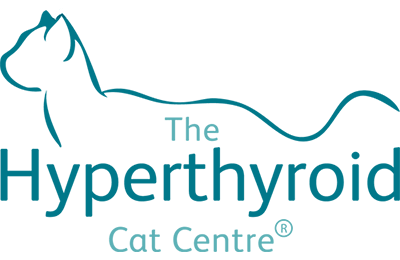Bonnie now cued of hyperthyroidism
The photo is of Bonnie on her favourite windowsill overlooking the garden. She will soon be 13 and started behaving oddly some months ago – quite manic at times and perpetually hungry. She was also losing weight despite eating twice as much as usual. A trip to our vet and a blood test confirmed our suspicions that she had an over-active thyroid, and we discussed what options were available for treatment. Administering daily pills would have been too traumatic both for Bonnie and for us, so initially we tried the Hills y/d exclusion diet. This was quite difficult as our other cat was on a normal diet, and Bonnie is partial to snack on the occasional mouse. Also, she didn’t find the food very palatable, although she tolerated it as there was nothing else.
We did a lot of research on the internet and concluded that radio-iodine treatment was the best solution, giving Bonnie the best chance of a normal life, and we decided to take her to the Hyperthyroid Cat Centre at Wetherby. We are so pleased we did as she received really excellent care from Andrew Bodey and his team, with daily reassuring updates, and is now back to her normal self. She can eat what she likes – including the odd mouse – and is gradually putting on weight.
After spending most of my working life in the nuclear industry, assessing radiation doses from various radionuclides deposited inside humans, little did I imagine I would be discussing radio-iodine deposition in cats after I retired!! The fact that we would be living with a radioactive cat for a short time therefore held no worries for us. Bonnie was only mildly radioactive when we collected her, and this was easily managed at home, keeping her shut in at first with visits from the dog and our other cat.
We would unreservedly recommend the Hyperthyroid Cat Centre, and would take our other cat there without hesitation if she were to develop hyperthyroidism.
by The Hyperthyroid Cat Centre

